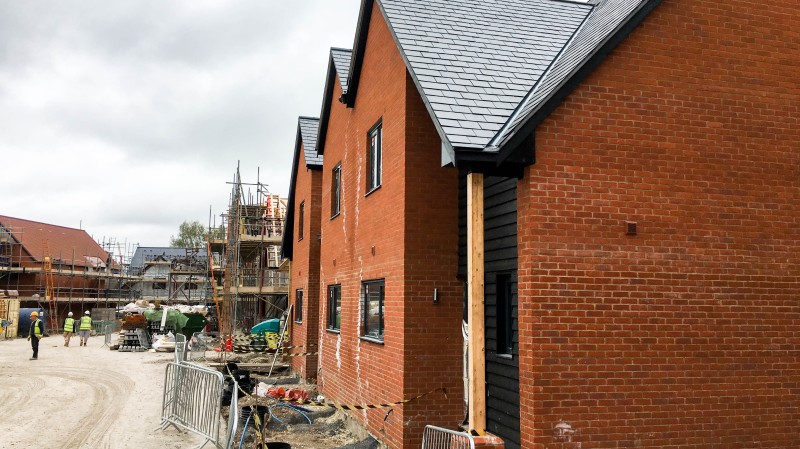You are here: What is a Planning search and why do I need it?
These searches will provide you with information about the surrounding area and any possible development near your dream home.
For example, you might like to know whether there is potential for an extension and the type that’s possible. You might also like to know whether your neighbour is having an extension, which schools are the best, where the local surgery is and whether there’s a mobile phone mast close to the house.
It’s a common misconception that this type of information is detailed on the local search but it isn’t. A local search doesn’t provide any information about planning consents or applications relating to any other properties.
Property owners and developers often do not start development for some time after obtaining planning consent. They can start work at any time while the consent remains valid; often up to five years. Planning consents can also be renewed in some cases. So, it makes sense to check whether there are any such dormant consents near your new home because building work could start at any time.

Are they mandatory?
No, they are not one of the standard conveyancing searches and are not required to be carried out to satisfy the standard instructions defined in The UK Finance Mortgage Lender’s Handbook.
The handbook comes in two parts, the first part applies to all UK Finance members –members of the organisation represent 97% of lending in the UK.
Part 2 contains a section for each member, detailing their requirements. This is where your conveyancer will find the list of which searches are required by your lender. In most cases the minimum required will be:
- Land registry searches (both Register and Title Plan)
- Local search - either Regulated or Council (both LLC1 and CON29)
- Water and Drainage - Regulated or CON29DW
- Environmental (likely to contain an element of ground stability assessment)
Further reports required include (but aren’t limited to):
- Flood
- Coal
- Cheshire Brine
- Limestone
- China and ball clay
- Tin
- Bath stone
- Radon gas
- Chancel repair liability reports (if the last purchase was before 12/10/13)
- Canal and river search
- Planning reports
- Highways
See other articles for more information.
When are they ordered?
Searches should be ordered as soon as you appoint your conveyancing solicitor: as a minimum this includes Land Registry and Local Searches, Water and Drainage Searches, an Environmental Search, a Flood Risk Report and any specifically required searches based on geography, such as Radon Gas, Mining or China Clay searches.
One of the first things your conveyancer will do is ask you for money ‘on account’ to pay for these searches.
What do they tell you?
The information provided depends on which supplier your legal professional buys the search from. However, most will show you details of any existing consents or applications relating to property within a 250 metre radius.
The key features are likely to include:
- Residential and commercial planning applications (existing or proposed), within a 250m radius of your property (specific house extensions as well as larger scale projects)
- Detailed planning project descriptions and application status information
- Planning constraints such as Listed Buildings and Building Conservation Areas, Green Belt, National Parks and Listed Buildings
- Points of local interest including transport, recreation, retail and entertainment
- Telecommunication masts and mobile transmitters data
- Primary and secondary schools league tables up to 2km from property
- Local authority information including tax banding, costs and contact details
- Electricity pylons and overhead transmission lines
- Designated Environmentally Sensitive Sites
- Crime rates
- Air Quality Management Areas
- Local authority’s planning policies for the area
- Potential areas for development in the locality
- Colour aerial photograph
- Large location maps with data overlays
Are there different types?
Yes, there are a number of companies that provide planning searches but they will all provide similar information.
What do they cost?
This depends on the provider that your conveyancing professional uses but a planning search usually costs in the region of £30 plus VAT.
How long do they last?
When acting on a conveyance, your solicitor must follow The UK Finance Mortgage Lender’s Handbook, it says that searches must be no more than 6 months old on completion.
A lot can change in a short space of time with property so even if this wasn't the case, it’s important that the information you have about your new property is as up to date as possible. Your conveyancer will let you know if the search is coming close to expiry.
If you are thinking of buying or selling your home, you may find some of these services useful:
Conveyancing
Get instant estimates from Conveyancers and Solicitors in your local area
Mortgage Brokers
I need help getting a mortgage
Estate Agent
Find a local Estate Agent
Valuation Surveys
If you need a Valuation Survey
Building Surveys
I want a local surveyor to do a Building Survey for me
Removals
I want to find a removal company
Energy Performance Certificate
Energy Performance Certificates